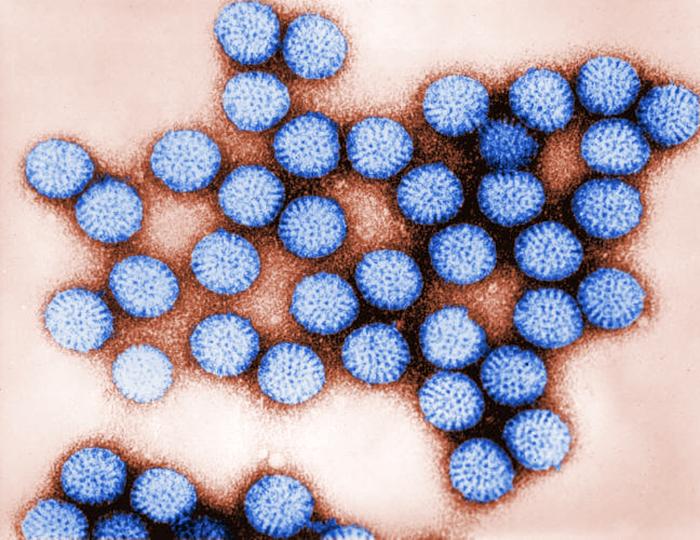Children who get infected may have severe watery diarrhea, often with vomiting, fever, and abdominal pain. Vomiting and watery diarrhea can last from 3 to 8 days. Additional symptoms include loss of appetite and dehydration (loss of body fluids), which can be especially harmful for infants and young children.
Symptoms of dehydration include
- decrease in urination
- dry mouth and throat
- feeling dizzy when standing up
Adults who get rotavirus disease tend to have milder symptoms.
Children, even those that are vaccinated, may develop rotavirus disease more than once. That is because neither natural infection with rotavirus nor rotavirus vaccination provides full immunity (protection) from future infections. Usually a person’s first infection with rotavirus causes the most severe symptoms.
Rotavirus spreads easily among infants and young children. Children can spread the virus both before and after they become sick with diarrhea. They can also pass rotavirus to family members and other people with whom they have close contact.
People who are infected with rotavirus shed rotavirus (passed from a person’s body into the environment) in their feces (stool). They shed the virus most when they are sick and during the first 3 days after they recover from rotavirus disease.
The virus spreads by the fecal-oral route; this means that the virus must be shed by an infected person and then enter a susceptible person’s mouth to cause infection. Rotavirus can be spread by contaminated
- Hands
- Objects (toys, surfaces)
- Food
- Water
Rotavirus can spread easily. Good hygiene (handwashing) and cleanliness are important but are not enough to control the spread of the disease.
Rotavirus vaccines are very effective in preventing rotavirus gastroenteritis and the accompanying diarrhea and other symptoms. CDC recommends routine vaccination of infants with either of the two available vaccines:
- RotaTeq® (RV5), which is given in 3 doses at ages 2 months, 4 months, and 6 months; or
- Rotarix® (RV1), which is given in 2 doses at ages 2 months and 4 months.
Rotavirus vaccines will not prevent diarrhea or vomiting caused by other viruses or pathogens.
There is no antiviral drug to treat rotavirus infection. Antibiotic drugs will not help because antibiotics fight against bacteria not viruses.
Rotavirus infection can cause severe vomiting and diarrhea. This can lead to dehydration (loss of body fluids). During rotavirus infection, infants and young children, older adults, and people with other illnesses are most at risk becoming dehydrated.
Symptoms of dehydration include
- decrease in urination
- dry mouth and throat
- feeling dizzy when standing up
The best way to protect against dehydration is to drink plenty of liquids. Oral rehydration solutions that you can get over the counter in U.S. food and drug stores are most helpful for mild dehydration. Severe dehydration may require hospitalization for treatment with intravenous (IV) fluids, which are given to patients directly through their veins. If you think you or someone you are caring for is severely dehydrated, contact your doctor.
